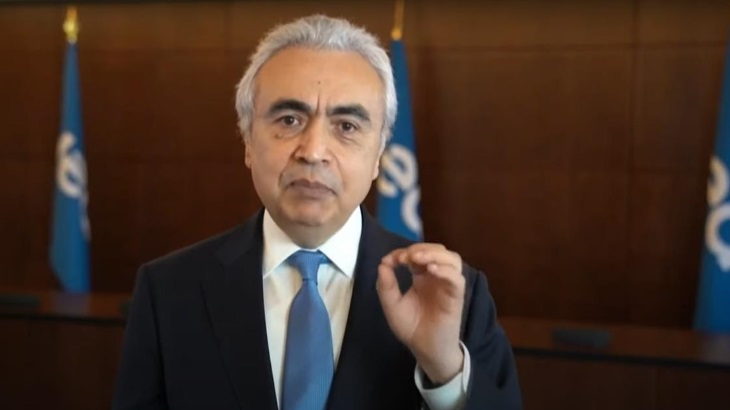"It is clear that the level of commitment to fight climate change has never been higher. This is excellent news but, I'll be blunt, commitments alone are not enough. We need real change in the real world. Right now, the data does not match the rhetoric and the gap is getting wider and wider."
The IEA's latest estimates for global emissions in 2021 are "a warning for humanity", he said, because they are on track to be the second largest increase in history.
"We are not recovering from COVID in a sustainable way and we remain on a path of dangerous levels of global warming," he said. "Yet there are grounds for optimism. Electricity generated from renewables, solar, wind and others will break records this year, and the sales of electric cars will reach another record high, but getting to net-zero emissions requires much more than that. We will need to transform our entire energy system. This means drastically cutting emissions from trucks, ships and planes. We will also need to do the same for steel and cement factories, chemical plants and in farming.
"We have today many technologies at our disposal - energy efficiency, solar, wind, electric cars, nuclear power, and many more - and we need to deploy these as quickly as possible. However, IEA analysis shows that about half of the reductions to get to net-zero emissions in 2050 will need to come from technologies that are not yet ready for market today. This calls for massive leaps in innovation; innovation across batteries, hydrogen, synthetic fuels, carbon capture and many other technologies."
To support stronger government actions, the IEA will on 18 May publish the first comprehensive roadmap for the global energy sector to reach net-zero emissions by 2050. Requested by the COP26 Presidency, the roadmap will set out a pathway for what is needed from governments, companies, investors and citizens to put global emissions on a path in line with a temperature rise of 1.5 degrees Celsius.
"Make no mistake, this is a Herculean task," Birol said. "Participants in this summit have used the occasion to make new announcements. Let me add one from the IEA. According to our upcoming Roadmap, reaching net zero will triple clean energy investment opportunities over the next decade. This will generate millions of well-paid jobs and create the industries of the future. But our priority is to make sure these benefits reach as many people as possible. We need to work all together to achieve our goals and create a better future for all of us."






_18570.jpg)
_16159.jpg)
_49205.jpg)





